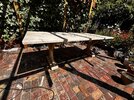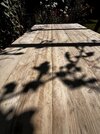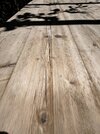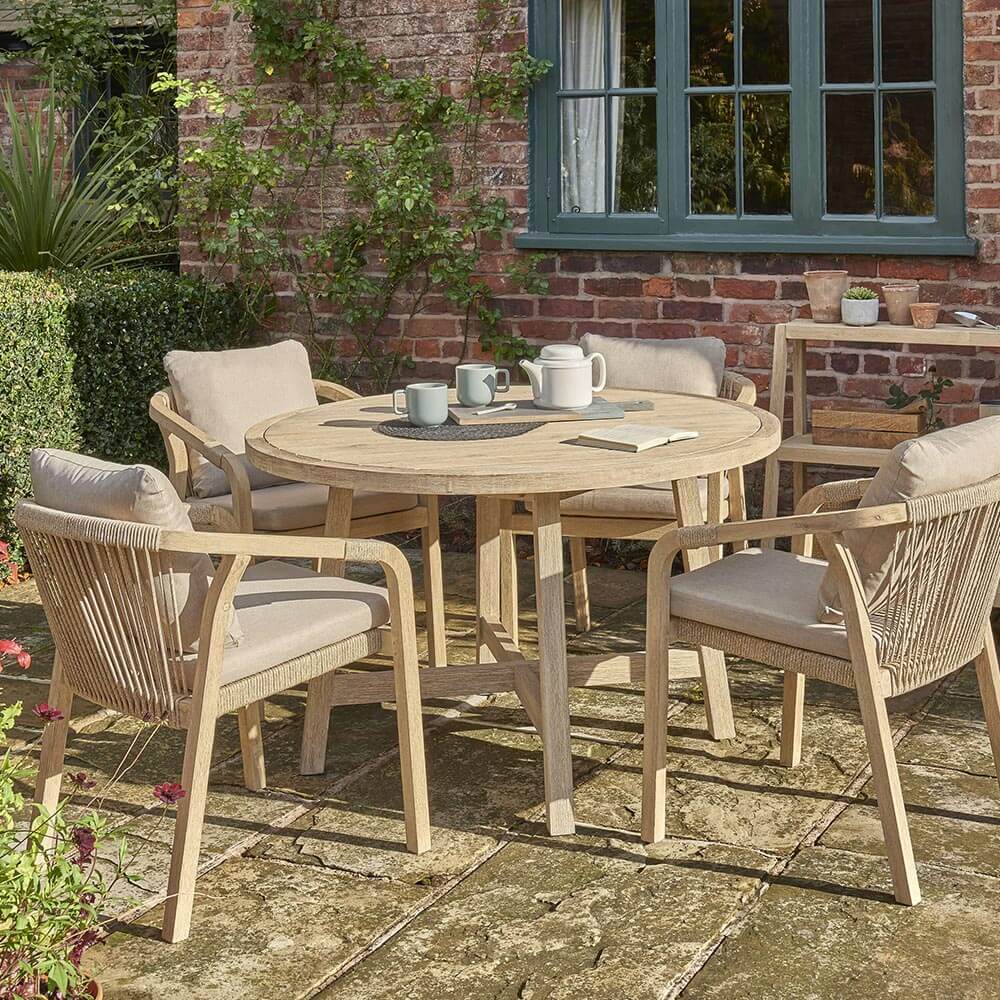Hello all
I've just completed the mammoth (to me) summer DIY task of brick patio, pergola and brick BBQ area and to finish it off as this wasn't enough work, I decided to also build the table for the patio.
I've made it from reclaimed scaffold boards and general 4x2 and 4x3 for the legs. When I was making the top, I tried my hardest to get straight edges on the boards but (a) because I'm a complete novice and (b) because I only have a very cheap (think Aldi middle aisle item) second-hand small table saw, they haven't quite lined up and there are a few gaps in places. I did at least use a biscuit jointer whilst gluing up. There are also a few fairly narrow splits (see last picture) that were already in the boards that could do with some filling at the same time. What would be the best thing to fill these with that will last and also look reasonable?
I have bought some Cuprinol treatment for the whole table once gaps are all closed up to protect it from the elements and will also put some sort of plastic feet on the bottom of the legs to raise it off the brickwork (damp) and also get a decent cover for it for the winter.
Any (kind) critique and advice very welcome!
I've just completed the mammoth (to me) summer DIY task of brick patio, pergola and brick BBQ area and to finish it off as this wasn't enough work, I decided to also build the table for the patio.
I've made it from reclaimed scaffold boards and general 4x2 and 4x3 for the legs. When I was making the top, I tried my hardest to get straight edges on the boards but (a) because I'm a complete novice and (b) because I only have a very cheap (think Aldi middle aisle item) second-hand small table saw, they haven't quite lined up and there are a few gaps in places. I did at least use a biscuit jointer whilst gluing up. There are also a few fairly narrow splits (see last picture) that were already in the boards that could do with some filling at the same time. What would be the best thing to fill these with that will last and also look reasonable?
I have bought some Cuprinol treatment for the whole table once gaps are all closed up to protect it from the elements and will also put some sort of plastic feet on the bottom of the legs to raise it off the brickwork (damp) and also get a decent cover for it for the winter.
Any (kind) critique and advice very welcome!





